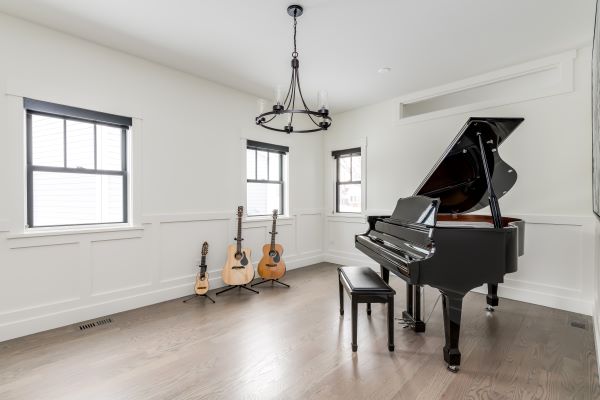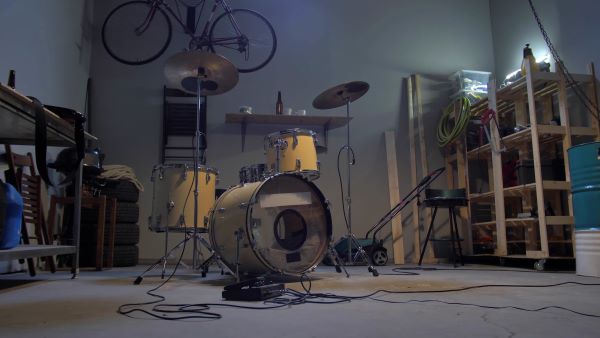No products in the cart.
Creating a Soundproof Music Room

28
Aug
If your family has a love for music and instruments, you may have a room solely dedicated to music within your household. Although a grand piano can look glamorous when placed in the foyer of a home, some people prefer to place it in a separate room along with other instruments. A music room can be a great way for individuals to have their own space to practice in without disrupting other family members. Though, musical instruments can be loud and distracting at times, even when they are played in a different room. Soundproofing your music room will block any sounds that may enter and leave the space; our guide provides the best ways to do so!
Tips for Creating a Soundproof Music Room
Pick the Right Space for the Designated Music Room for Best Results
Before going into depth of which soundproofing measures are best for a music room, it’s important to pick a good location. You want to pick a room in your home that is furthest away from common areas (like the kitchen and living room) for best results. It may also be a good idea to pick a room with the least amount of windows, since noise can easily leak through them. It’ll be much easier to keep noise out when the music room isn’t in close proximity to areas that could become noisy. By picking the best location, it will be much easier to soundproof your music room.

Install Mass Loaded Vinyl Behind Walls for Effective Noise Reduction
One of the most effective soundproofing methods for a music room at home would be by installing Mass Loaded Vinyl. This product is made of a flexible material that blocks sound and is placed behind a drywall. There’s several options to choose from when purchasing Mass Loaded Vinyl, such as ones with more density or of different sizes. This works especially well in a music room by deflecting sound waves and creating better audio quality.
Place Acoustic Panels on Walls as a Soundproof Solution
If you aren’t keen on the installation process of Mass Loaded Vinyl and prefer an easier do-it-yourself project, you can use acoustic wall panels as an alternative. Although these panels aren’t as effective as MLV, they are much quicker to install and provide noticeable results. They absorb sound and reduce echo within a space, which is perfect for music rooms due to the likelihood of using loud instruments. Better yet, you can create custom made acoustic art panels as a way to aesthetically elevate the room in addition to soundproofing.
Use a Soundproof Door Cover to Keep Noise Out
Doors are one of the main sources for noise leaks, which are any small gaps or cracks around a surface that noise can travel through. An easy way to soundproof the door to your music room would be by installing the AcoustiDoor. This is a soundproof cover that hangs over your door, made of a dense material that blocks sound. It’s a great way to minimize the amount of noise that may enter and leave a music room.
See Similar: How to Create Your Own Soundproof Podcast Studio
Install Carpet Flooring for An Echo-Free Room
Hardwood or tile floors can make a music room extremely noisy as the sound waves will bounce off of the solid surface. This can also create a lot of echo and make it more difficult to practice playing musical instruments. Although replacing flooring with carpeting can be a bit of a hassle, you will be extremely pleased with the results. Carpet flooring absorbs sound waves, rather than reflecting them, which creates an improved music room. If you have a handyman in your family, the video below shows how to install carpeting flooring yourself (though most people choose to have it installed by professionals).
Creating a Soundproof Music Room – Conclusion
Soundproofing your music room at home will have many benefits and improve your experience when practicing. It will also lower the possibility of disturbing other family members within the home. You will be able to focus on playing your instrument without having to worry about disrupting others, or hearing noises from outside the room. Let’s review the steps you can take towards soundproofing a music room:
- Pick the Right Space for the Designated Music Room for Best Results
- Install Mass Loaded Vinyl Behind Walls for Effective Noise Reduction
- Place Acoustic Panels on Walls as a Soundproof Solution
- Use a Soundproof Door Cover to Keep Noise Out
- Install Carpet Flooring for an Echo-Free Room
